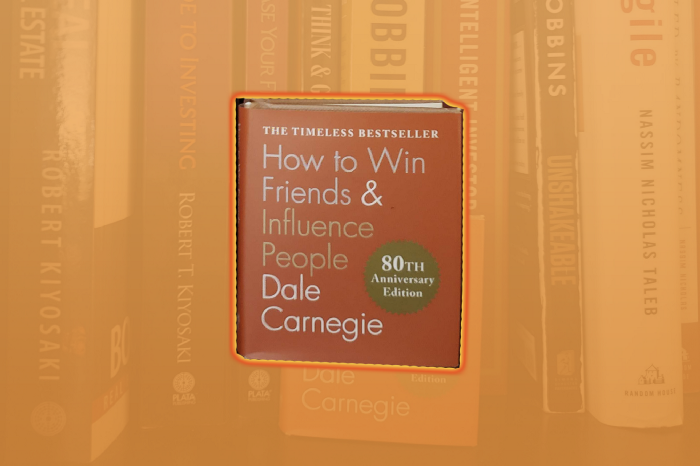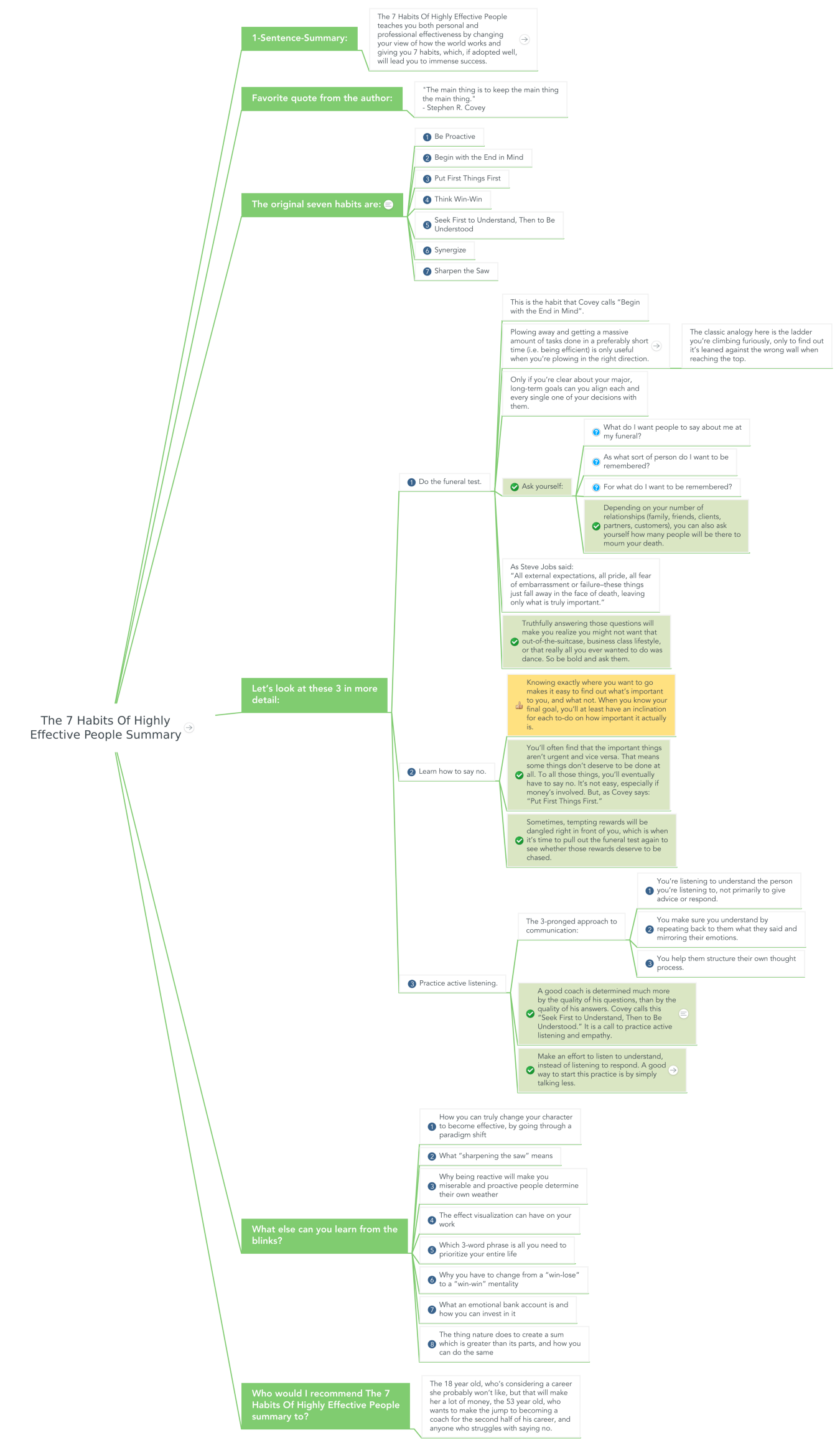Cover Photo and illustration by the author
Years of wisdom condensed in an easily digestible and visual format
“Wouldn’t it be great if I could get all the best stuff from books in under five minutes and retain the information for life?” — Curious Danny
That was a question I once pondered. It was only years later that I realized how to make it possible.
Reading book summary is a good way to get the information you need from it, but unless you involve more senses, you won’t retain much from it. That’s why, this year, I started converting book summaries into a more visual version, using mind maps.
The reason mind maps work better is that, as hinted above, it’s involving our visual senses. It also creates a sense of order, which our brains are more apt to grasp. When you take a mental picture of the summaries below, it will be much easier to recollect the things you’ve learned.
In this article, I’m showing you some of the most popular ones from FourMinuteBooks.com, all from timeless or soon-to-be-timeless books.
If you’re interested in article summaries instead, I’ve created a collection of over 500. New ones get added daily.
Enjoy your visual reading experience!
Credits
The original summaries were created by Niklas Göke and Luke Rowley for FourMinuteBooks.com. The visual summaries you see in this article were all created with their written consent.
All the visual versions (mind maps) were created by my wonderful assistant: Ajith.
All the mind maps were created using my favourite mind mapping tool: Mind Meister. Full disclosure: I am an Expert Partner with them and make money from people who sign up for their product.
Table of Contents
Atomic HabitsGetting Things DoneGood to GreatHow to Win Friends and Influence PeopleRich Dad, Poor DadThe 7 Habits of Highly Effective PeopleThink and Grow RichAtomic Habits
Author: James ClearOriginal published date: Oct. 16, 2018It’s hard to imagine Atomic Habits being only two years old. It took the world by storm when it came out and it continues to be one of the best-selling non-fiction books out there. Clear did a near-perfect job looking into the science of breaking bad behaviours and adopting good ones. In the book, he shares the patterns he has noticed and how to apply each of them.
This is the most recent book among all the other ones in this article.
Getting Things Done
Author: David AllenOriginal published date: 2001 (exact date unknown)David Allen invented the Getting Things Done method (GTD for short) years before the publication of this book. He was teaching the method to businesses and executives. Due to its massive success, he wrote the book, which turned out to be an even greater success. Next year, the book is turning 20 years old. I’m secretly hoping for a 20th-anniversary edition.
Good to Great
Author: Jim CollinsOriginal published date: Oct. 16, 2001I never used to read books. Schools pretty much ruined it for me. So, what makes this book special for me is that it’s the first book I read after years of not reading any books. As a software engineer and entrepreneur, the deep analysis Collins goes into appealed to me greatly. It opened the door to read more and discover most of the other books showcased in this article.
Fun fact: Atomic Habit was also published on October 16th. Other books from the list were also published in October.
How to Win Friends and Influence People
Author: Dale CarnegieOriginal published date: Oct. 1936 (exact date unknown)This is the oldest book showcased in this article and probably one of the books that best stood the test of time. Carnegie captured the essence of what it takes to be a likable person. Fast forward to 2020, and it turns out we haven’t changed one bit. All the lessons still apply. This is a perfect example of a timeless book.
Funny story: A while back, I ordered this book from Amazon thinking I had bought a “normal” version. It turns out, it was a micro version. To this day, it’s the only physical copy I own.
I’m not sure why I’m letting it sit next to my money-related books, it’s not really about money.
Rich Dad, Poor Dad
Author: Robert T. KiyosakiOriginal published date: 1997 (exact date unknown)This book was a revelation for me for a few reasons. It confirmed a few things I believed in, I learned other things I’ve applied with success, and boy was it written in such an engaging way! Over the years, I found myself re-reading the book just for the narrative. It was one of the few books I read in one sitting and immediately bought the author’s other books (as shown in my photo above).
The 7 Habits of Highly Effective People
Author: Stephen R. CoveyOriginal published date: 1989I think I own three copies of that book: one on Kindle, one from an early version, and one from the 2020 edition. I got an advance copy of the latest edition and loved it. The new insights from Covey’s son, Sean Covey, make it worth the purchase again. What I especially appreciated is that over 20 years ago, Covey, the father, used his children as examples. At the time, they were quite young. In the latest edition, we get his children’s perspective on things.
Think and Grow Rich
Author: Napoleon HillOriginal published date: 1937I bought this book for $2 expecting nothing out of it, even though I was a big fan of Hill’s quotes. I have never really cared for money, so the title never attracted me. I was wrong to dismiss it. It’s one of the best books I’ve read and it remains one of my all-time classics. The book is misnamed, it’s not about money. Hill used it as a pretext because money was sexy (and remains sexy today). In reality, this is very much a practical self-help book. I was impressed by how applicable his lessons still are today.
Summaries of summaries
Here’s how FourMinuteBooks.com summarized each book into a single sentence:
Atomic Habit — Atomic Habits is the definitive guide to break bad behaviors and adopt good ones in four steps, showing you how small, incremental, everyday routines compound and add up to massive, positive change over time.
Getting Things Done — Getting Things Done is a manual for stress-free productivity, which helps you set up a system of lists, reminders and weekly reviews, in order to free your mind from having to remember tasks and to-dos and instead let it work at full focus on the task at hand.
Good to Great — Good To Great examines what it takes for ordinary companies to become great and outperform their competitors by analyzing 28 companies over 30 years, who managed to make the transition or fell prey to their bad habits.
How to Win Friends and Influence People — How To Win Friends And Influence People teaches you countless principles to become a likable person, handle your relationships well, win others over and help them change their behavior without being intrusive.
Rich Dad, Poor Dad — Rich Dad Poor Dad tells the story of a boy with two fathers, one rich, one poor, to help you develop the mindset and financial knowledge you need to build a life of wealth and freedom.
The 7 Habits of Highly Effective People — The 7 Habits Of Highly Effective People teaches you both personal and professional effectiveness by changing your view of how the world works and giving you 7 habits, which, if adopted well, will lead you to immense success.
Think and Grow Rich — Think And Grow Rich is a curation of the 13 most common habits of wealthy and successful people, distilled from studying over 500 individuals over the course of 20 years.
— Danny









